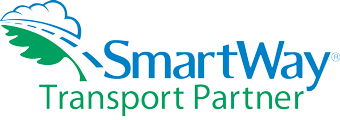What are Accessorial Charges? A Guide to LTL Freight Fees
04/27/2023 — Leah Palnik
No one likes surprise fees. Unfortunately, there are quite a few extra costs that are likely to pop up with LTL freight. Known as accessorial fees, these charges cover a wide variety of extra services and can add up fast. In this post, we'll answer the question, "what are accessorial charges?" and provide a list of common LTL accessorial fees to help you better understand and manage your freight costs.
What are accessorial charges?
Accessorial charges are fees for services performed by the carrier that are considered to be beyond the standard pickup and delivery. These fees make up just one part of your freight rate, but can be challenging to manage. Understanding which accessorial charges you can plan for and which ones you can avoid is necessary if you want to keep your freight costs in check.
What are some common LTL accessorial charges?
You might be wondering what is considered an extra service, and you’re not alone. We’ve compiled some common LTL accessorial fees so you know what to look out for.
- Lift Gate Service
When the shipping or receiving address does not have a loading dock, manual loading or unloading is necessary. A lift gate is a platform at the back of certain trucks that can raise and lower a shipment from the ground to the truck. Having this feature on trucks requires additional investment by an LTL carrier, hence the additional fee. - Residential Service
Carriers define a business zone as a location that opens and closes to the public at set times every day. If you are a business located in a residential zone (among personal homes or dwellings), or are shipping to or from a residence, the carrier may charge an additional residential fee due to complexity in navigating these non-business areas. - Collect On Delivery (COD)
A shipment for which the transportation provider is responsible for collecting the sale price of the goods shipped before delivery. The additional administration required for this type of shipment necessitates an additional fee to cover the carrier's cost. -
Oversized Freight
Shipments containing articles greater than or equal to twelve feet in length. Since these shipments take up more floor space on the trailer, additional fees often apply. - Fuel Surcharge
An extra charge imposed by the carriers due to the excessive costs for diesel gas. The charge is a percentage that is normally based upon the Diesel Fuel Index by the U.S. Energy Information Administration. - Inside Pick Up/Inside Delivery
If the driver is required to go inside (beyond the front door or loading dock) to pick up or deliver your shipment, instead of remaining at the dock or truck, additional fees will be charged because of the additional driver time needed for this service. - Advance Notification
This fee is charged when the carrier is required to notify the consignee before making a delivery. - Limited Access Pickup or Delivery
This fee covers the additional costs required to make pickups or deliveries at locations with limited access such as schools, military bases, prisons, or government buildings. - Reweigh and Reclassification
Since weight and freight class determine shipment base rates, carriers want to make sure the information on the BOL is accurate. If the carrier inspects a shipment and it does not match what was listed, they will charge this fee along with the difference.
Navigating the many nuances of LTL freight accessorial fees to determine which services you need and which you can avoid will help ensure the most cost effective price. Carriers generally publish a document called the "Rules Tariff 100" which provides a list of current accessorial services and fees. The shipping experts at PartnerShip are well versed in these documents and are happy to help with any questions you may have.
Want a more in-depth look into freight accessorial fees and how to avoid or offset the added costs? Check out our free white paper!




